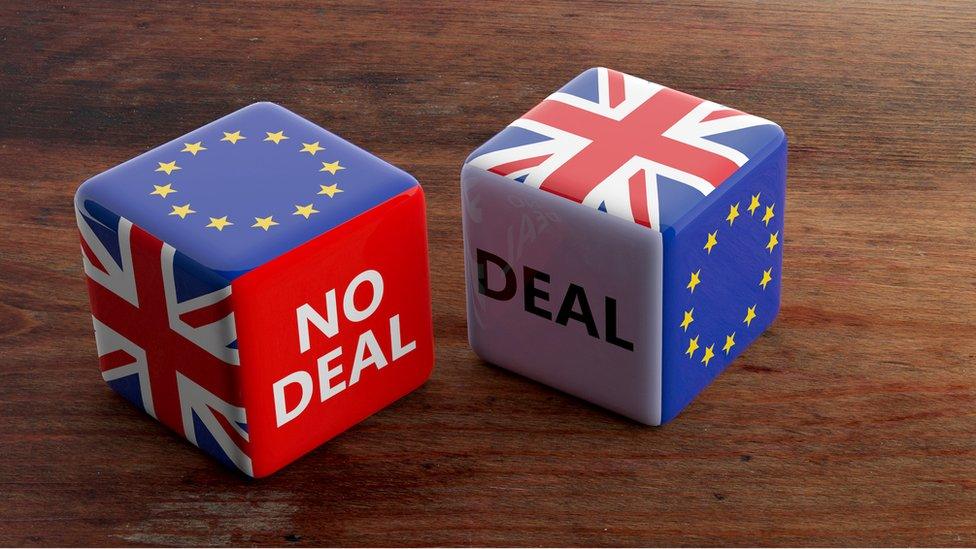Brexit: More dramatic days in Parliament
- Published
- comments

The Prime Minister's plans for Members of Parliament to vote again on his Brexit deal have been refused.
Boris Johnson wanted MPs to hold a "yes" or "no" vote on Monday afternoon but the Speaker of the Commons ruled out the request.
John Bercow said the deal had already been discussed over the weekend, and that'd it be "repetitive and disorderly" to debate it again.
Why did the speaker say that?
MPs sat on a Saturday for the first time in 37 years and were supposed to vote on the deal.
But after several hours of debating, the deal was put on hold after MPs voted in favour of an amendment - that's basically a change to the law - which means Boris Johnson's deal can't be approved until legislation is in place to stop a no-deal.
It means the PM legally had to send a letter to the EU requesting a Brexit extension, but controversially he hasn't signed it.
Boris Johnson has previously said he would do anything to avoid asking the EU for a delay and the UK would leave on 31 October.
He's now also sent another letter to Brussels in which he said he believes a delay would be a mistake.
The President of the EU Council, Donald Tusk, tweeted that he had received the prime minister's letter and would be speaking to EU leaders.
Brexit: What happens next?
What is the new deal?
Most of the new deal is similar to the one that former Prime Minister Theresa May agreed last year, but there's one big change to do with the Irish border backstop.
It's not been an easy road coming up with solutions to this that all side agrees on.
But the new deal suggested by the Prime Minister replaces the controversial backstop plan in Theresa May's deal.
This deal says that Northern Ireland will remain a part of the UK's customs union.
Also the UK will not apply taxes called tariffs to products entering Northern Ireland, as long as they are not meant to be taken through the border into the Republic of Ireland.
Other things that form part of the new deal are that the UK will continue to follow EU rules until the end of 2020, and possibly longer, to allow businesses to adjust.
As well as that, the rights of EU citizens living in the UK, and UK citizens in the EU, will be guaranteed.
What's the problem then?
Not everyone is happy with the deal. The Democratic Unionist Party, which is a party in Northern Ireland, says it will not support the deal.
The problem here is that Boris Johnson's party (the Conservatives) may need to rely on them get a vote through Parliament.
In a statement they say "these proposals are not, in our view, beneficial to the economic well-being of Northern Ireland".
Meanwhile, Labour's leader Jeremy Corbyn said the deal sounded "even worse" than the one suggested by the previous Prime Minister, Theresa May.
Why did MPs get heckled?
Thousands of protestors marched outside parliament
Thousands of people marched outside parliament yesterday to demand a second referendum as they don't like the way Brexit is being dealt with.
The protestors believe that the public should be given a second chance to vote for or against Brexit.
Andrea Leadsom and Michael Gove were among MPs who were heckled as they left Parliament following a vote.
What happens next?
So the EU is now considering Boris Johnson's letter, but a Brexit extension can't be agreed unless all 27 EU nations are in agreement.
Also, the EU doesn't have to give an immediate answer. If it refuses to allow the UK to have a delay to Brexit, Parliament has until 31 October to pass a deal.
There's also talk of a second referendum or even another general election if a deal can't be agreed on.
Everything is very much still up in the air, but as always we'll keep you updated here on Newsround.
- Published3 April 2019
- Published16 September 2019
- Published23 October 2019
